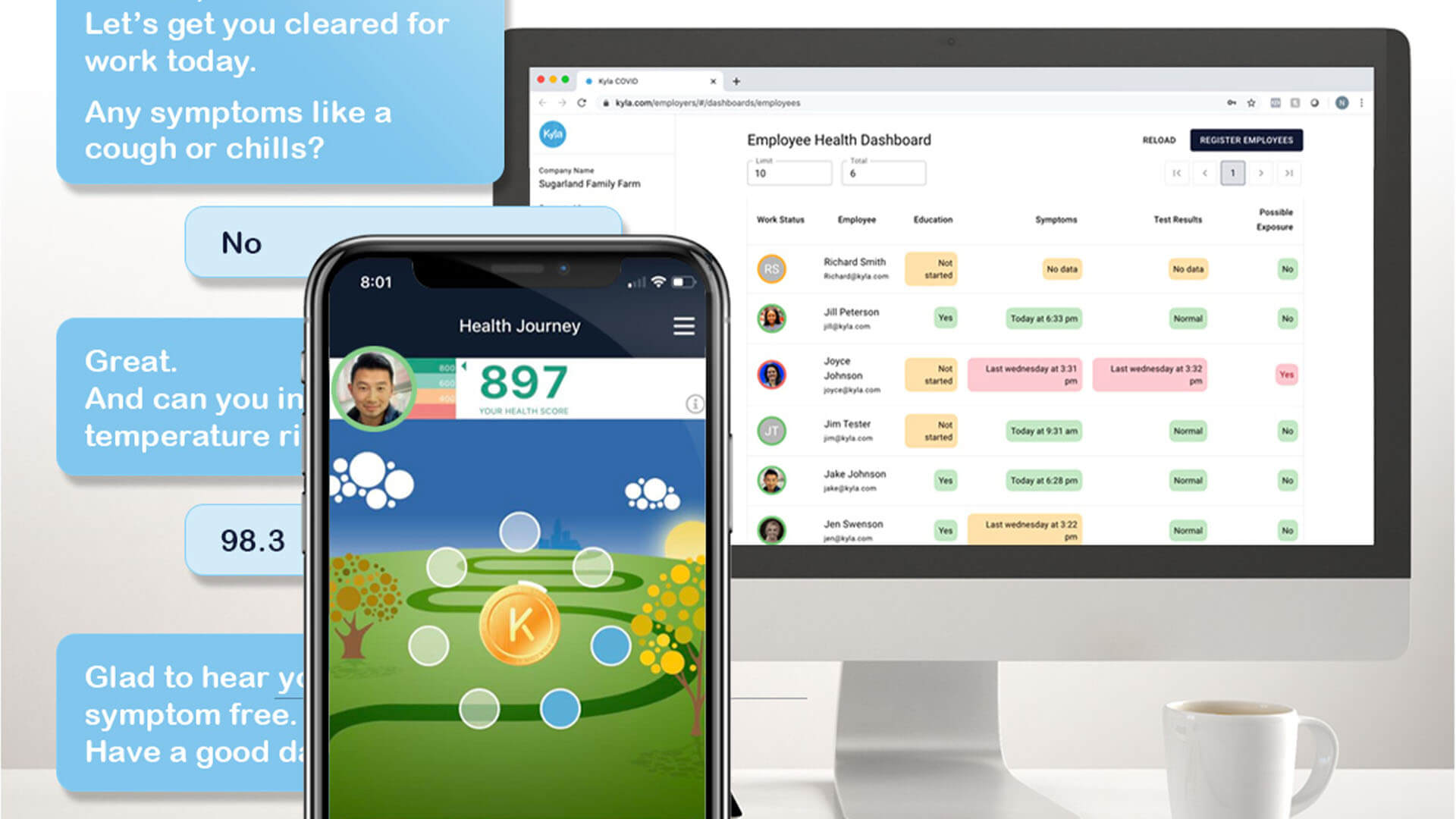As we look back on the events of the COVID-19 pandemic, various problems stand out, including the challenges of coronavirus testing. When the pandemic began, it became almost impossible to get testing due to a lack of test access and supply chain shortages limiting the availability of the most basic testing tools such as swabs. To address the problem, the FDA took steps to increase testing availability with emergency use authorization (EUA) and innovators such as Kyla were able to step in to fill the testing gap with on-site testing for employers and schools. Now that the COVID crisis is starting to abate, Kyla is looking to the future and seeing ways that lessons learned in developing their mobile coronavirus testing model can evolve into a new model of delivering healthcare services that benefit physicians and patients.
A startup based in San Jose, California, Kyla offers companies a unique on-site testing service to make the workplace safer by providing a means to test and track workers for coronavirus infection. The brainchild of founder and CEO Garick Hismatullin, Kyla is a subsidiary of Active Health, a primary and urgent care provider with 20 locations throughout California. When COVID-19 began to spread, Hismatullin and his team recognized that there would be an immediate need for more virus testing and tracking. By bringing together medical testing and mobile technology, Kyla developed a solution for employers that would help them regularly test employees and track test results so they could maintain a safe work environment.
Throughout the pandemic, Kyla has been supporting more than 400 employers and thousands of employees across California with on-site COVID testing, patient tracking and contact tracing. The concept is elegantly simple. Kyla helps clients with on-site testing of employees for possible COVID infection. Mobile testing units are dispatched, and workers are tested at their place of work. The test results are determined within 24 hours, recorded and presented on a digital dashboard that keeps both employees and employers apprised of test findings. The result is a healthier and safer workplace.
Taking Medical Testing to Consumers
Once the pandemic is behind us, Hismatullin and the Kyla team anticipate that the same mobile medical testing services will change healthcare as we know it. Hismatullin plans to reallocate Kyla’s fleet of nurses and mobile testing vehicles to provide medical testing for patients at home as an extension of telemedicine.
“Even with widespread distribution of vaccines, patients are going to be reluctant to return to doctors’ offices,” said Hismatullin. “Beyond delivering vaccinations at your workplace, we see delivering consumer vaccines and medical testing as the next big thing for us. There is no reason why a nurse can’t come to your home to collect blood and samples for testing, then have your physician review the results of the tests later via Zoom. We plan to revolutionize telemedicine. It’s a new approach to medical care where both the patient and the doctor come out winners.”
American consumers were reluctant to see visit physician offices even before the pandemic with 22% percent of Americans saying they avoid doctor visits due to costs. According to the CDC, four out of 10 adults avoided medical care in 2020 because of concerns about the pandemic. Doctors reported a steep drop in revenue due to COVID, with a 60% decline in walk-in patients. However, telemedicine is on the rise with the CDC reporting a 50% increase in telemedicine consultations in the first quarter of 2020. What’s more, 83% of patients say they plan to continue to use telemedicine after the pandemic.
Telemedicine Is Here to Stay
Hismatullin predicts that the adoption of virtual doctor visits is here to stay, and more medical practices will embrace telemedicine as an alternative to in-office patient visits.
“We are approaching what I call Telemedicine 2.0,” said Hismatullin. “Traditional telemedicine has been around since the 1990s when you could send an email or get on the phone, and video calls have been around for some time, but there has been a lot of guesswork because doctors don’t have enough data. Having the test data in hand is important, which is where a service like Kyla becomes invaluable. We are like the Uber of medical testing, where someone comes to your house to gather the data so your doctor can prescribe the right treatment.”
Expanding telemedicine offers advantages for both patients and physicians. For patients, it means they no longer have to sit in a waiting room with other sick people waiting to see a doctor. For physicians, it means providing more efficient and cost-effective care. The biggest cost in any doctor’s office is staffing and office overhead. With telemedicine, you can cut HR and overhead expenses and still provide excellent patient care so it translates into savings for both physicians and patients.
“The economics don’t work anymore, especially with the way doctors are being reimbursed,” said Hismatuilin. “We have to leverage the technology and get that patient data to make the process very, very efficient. Over the next few years, I think we will see in-home testing and telemedicine working substantially better from a price perspective than the traditional healthcare model.”


















